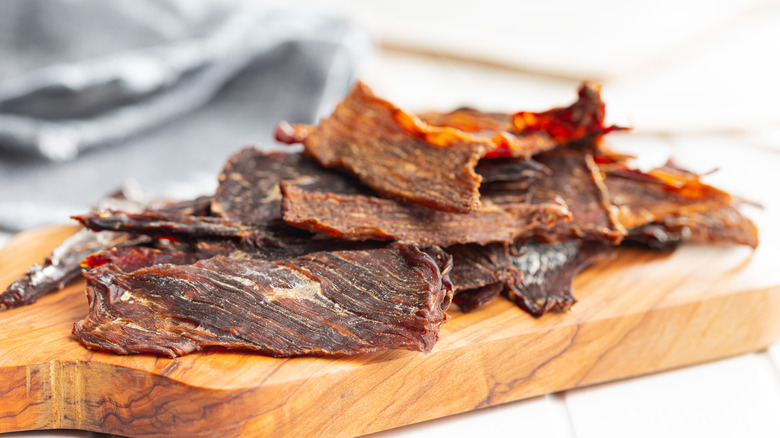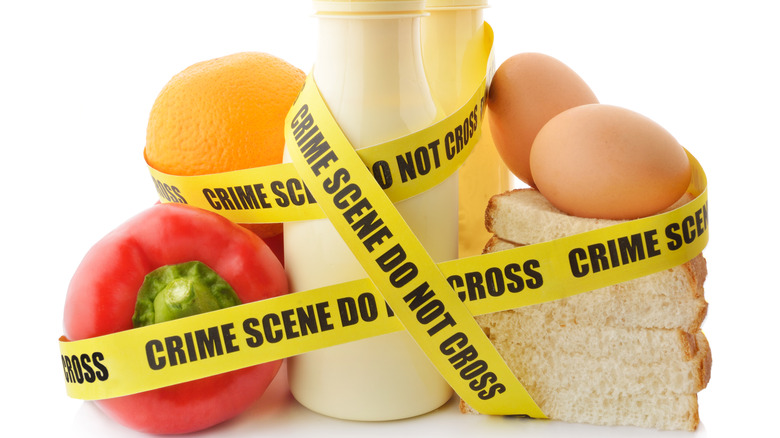Thieves Made Off With $3,000 Worth Of Beef Jerky In New Mexico
While the Grinch might have snuck into the Whos' homes and stole the Roast Beast, thieves in New Mexico drove away with bags full of beef jerky. It seems that the holiday season is going to be far from plentiful for DeeDee's Finest Beef Jerky. According to KRQE, thieves pilfered the food store Saturday night and Sunday morning and walked away with between $2,000 to $3,000 worth of food. The shelves were well-stocked in preparation for the holiday sales. As Denise Vigil, the store's owner, told the news organization, "It just broke my heart. Like I said, we're a small business, we're a family business, we're here to help out the community, not trying to get rich off the community."
This disheartening story is not the first time that a meat bandit walked away with a bounty of beef jerky. In 2017, Inside Edition reported that an Oklahoma man walked away with $400 worth of beef jerky. Although soaring food costs and inflation might have some consumers feeling as if they are being robbed at the grocery store, the brazen attempt to steal from store shelves is not a viable solution. While DeeDee's Finest Beef Jerky might be working hard to restock its shelves for the holiday season, it does not negate the crime that took place. Needless to say, these food criminals are real jerks this holiday season and definitely deserve a place on the naughty list.
Why is food crime so lucrative?
While the recent beef jerky heist epitomizes a holiday scrooge moment, food crime is not necessarily a new concept. Over the years, many thieves have reaped the benefits of wheeling cheese out a back door, emptying the meat locker, and various sticky-fingered steals. Although movies glamorize jewelry thefts and bank heists, food might be the smart steal for one main reason. Once the evidence is eaten, is there really any evidence left?
As discussed by Gastropod, certain foods are popular for thieves. Although some people might mindlessly pour syrup on those pancakes, the maple syrup heist of 2012 was a sticky situation. More recently, the Trinidad Express reported over $1 million dollars worth of cheese from El Socorro. Earlier this year, thieves walked away with 3,500 pounds of Dutch cheese. Other thieves emptied trucks full of beef.
Since it is almost impossible for the stolen good to be traced once it is resold, food crime can fill thieves' coffers. While the Hamburglar might be a silly icon and Robin Hood might be folklore, these crimes have a bigger impact beyond one company's bottom line. Since crime does not pay, the consumer might feel the impact of these illegal actions at the checkout line.

